Suivi et évaluation
La plupart des défis liés au suivi et à l’évaluation, comme la quantité insuffisante d’investissements et le manque de capacités, ne sont pas spécifiques à l’assistance monétaire, mais ceux qui le sont concernent principalement le suivi des résultats des transferts non affectés. La flexibilité des transferts monétaires peut compliquer la définition d’indicateurs de résultats appropriés, qui pourraient impliquer un mélange d’indicateurs spécifiques au secteur et transversaux. En parallèle, il existe des limitations au moment de collecter des données précises sur la manière dont les transferts monétaires sont dépensés.
Les signataires du Grand Bargain se sont engagés à garantir que des mécanismes de suivi et d’évaluation pertinents des transferts monétaires soient en place, et à assurer une meilleure compréhension des coûts, avantages, impacts et risques de cette modalité par rapport à d’autres. En partant de cet engagement, le chantier du Grand Bargain sur les transferts monétaires a établi plusieurs points d’action, dont le développement d’indicateurs de résultats communs pour les transferts monétaires à usages multiples, et des indicateurs pour l’analyse de l’optimisation des ressources. L’analyse systématique de l’optimisation des ressources a été rendue difficile par plusieurs facteurs, dont un manque d’approches approuvées, le besoin en données sur les résultats en termes de qualité et le caractère intensif de l’analyse.
Priorités actuelles
Dans le cadre des engagements du chantier du Grand Bargain sur les transferts monétaires, le CALP Network a co-dirigé (avec l’USAID et CRS) la mise au point d’indicateurs de résultats des transferts monétaires à usages multiples. Le projet à tester est actuellement disponible en anglais, espagnol et français, via la bibliothèque.
Initiatives associées
Contenu présenté

Indicateurs de résultats des transferts monétaires à usages multiples : Projet final à tester
Guides et outils
Les indicateurs présentés dans ce document se concentrent sur les principaux objectifs des TMUM humanitaires et sur les résultats auxquels les transferts monétaires à usages multiples peuvent le plus fortement contribuer. (Par exemple, certaines interventions en TMUM visent à relier les personnes aux systèmes de protection sociale après la fin du TMUM; mais nous n’avons pas inclus...

Monitoring 4 CTP: Monitoring Guidance for CTP in Emergencies
Guidelines and Tools
This guidance provides a central resource to promote a common understanding of the most important monitoring considerations for humanitarian projects using cash transfer programming (CTP). The primary audience for this guidance is field-level practitioners, from organisations directly involved in the design, implementation, monitoring, and accountability of projects using cash and vouchers...

Cost-Efficiency Analysis of Basic Needs Programs: Best Practice Guidance for Humanitarian Agencies
Guidelines and Tools
The Efficiency, Effectiveness and Value for Money Sub-Workstream is pleased to share the final output on Cost-Efficiency Analysis of Basic Needs Programs: Best Practice Guidance for Humanitarian Agencies (attached).
Cost-efficiency analysis estimates the ratio of program costs to outputs created, allowing you to compare cost-per-output for programs which all produced the same output. Such...
Thematic lead
Contenu récent
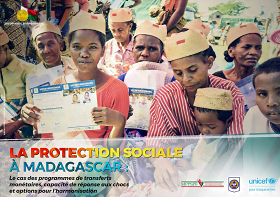
La Protection Sociale à Madagascar – Le Cas des Programmes de Transferts Monétaires: Capacité de réponse aux chocs et options pour l’harmonisation
Rapport
This study was undertaken as commissioned by the Government of Madagascar (Ministry of Population, Social protection and Women’s Promotion and the National Office of Risk and Disaster Management) in coordination with the members of the emergency cash group and with UNICEF’s funding and technical...
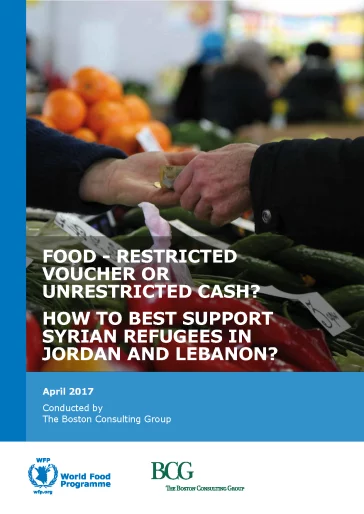
Food – Restricted Voucher or Unrestricted Voucher Cash? How to Best Support Syrian Refugees in Jordan and Lebanon?
Report
The World Food Programme (WFP) plays a pivotal role in the food security of Syrian refugees within the Syria +5 region. WFP periodically reviews its operational approach, so it is timely to consider what the best modality for the next phase of the response might be, including the pros and cons of...

Enacting urban cash for work programmes in Lebanon in response to the Syrian refugee crisis
Guidelines and Tools
Humanitarian crises in cities require responses that reflect the urban context,address urban challenges, and provide urbanised solutions. This paper focuses on providing guidance on good practice in cash for work (CfW) programmes. Focusing on Lebanon and the Syrian refugee crisis, the paper provides nine...

Scaling-up CTP in Somalia: Reflecting on the 2017 Drought Response
Report
This report summarises discussions that took place during a half-day workshop in September 2017. It built on issues identified as needing action in May, as outlined in the ‘Looking back to move forward: Building on learning from 2011 to strengthen the 2017 drought response in Somalia learning report’.
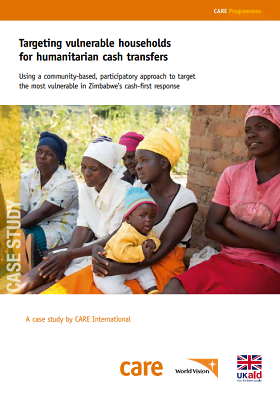
Targeting vulnerable households for humanitarian cash transfers: using a community based, participatory approach to target the most vulnerable in Zimbabwe’s cash-first response
Report
Over 73,000 drought affected households across 15 districts in Zimbabwe received monthly multi-purpose, unconditional cash transfers. With such a large caseload over a wide area, 100% verification of the households would not have been the most resource efficient approach. Moreover, there would have been a...

Exploitation des technologies numériques dans les transferts monétaires mis en oeuvre lors de la réponse à l’épidémie d’Ebola
Rapport
L’adoption des technologies numériques s’est accrue parallèlement à l’essor des transferts monétaires, souvent au moyen de transferts électroniques, car ces solutions présentent des avantages en matière de transparence et d’efficacité (gain de temps et d’argent). En 2015, le Haut Panel...
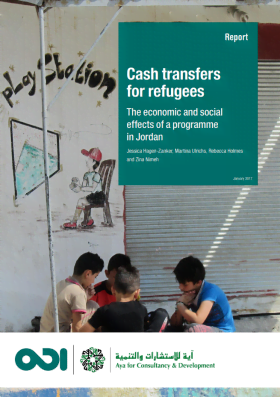
Cash transfers for refugees. The economic and social effects of a programme in Jordan
Report
The world is now experiencing the biggest refugee crisis since the second world war, with around 21.35 million refugees reported in 2015 (UNHCR, 2016a). Those countries with the highest outflow of refugees – Syria, Afghanistan and Somalia in 2015 – are facing ongoing conflicts that are unlikely...

Effects of Unconditional Cash Transfers on the Outcome of Treatment for Severe Acute Malnutrition (SAM): A Cluster-Randomised Trial in the Democratic Republic of the Congo
Report
Cash transfer programs (CTPs) aim to strengthen financial security for vulnerable households. This potentially enables improvements in diet, hygiene, health service access and investment in food production or income generation.The effect of CTPs on the outcome of children already severely malnourished...

Cash Transfer Programming: Lessons from northern Iraq
Report
In situations of conflict, disaster and protracted crisis, displaced persons not only face physical threats but are also confronted with the challenge of economic survival. High levels of general unemployment or legal barriers to labour market entry often restrict access to jobs and income, and...

The Financial Journey of Refugees Full Report
Report
This document details how refugees and migrants from the Middle East, South and Central Asia and East, West and North Africa finance their journeys and manage money along the way.

Checking Back – Using Cash and Vouchers in Somalia: Recommendations from the 2011-12 Somalia Drought Response
Report
This paper brings together recommendations from some of the key reports and evaluations from the 2011 Somalia drought response. The process of preparing this paper involved reviewing 17 reports and identifying five that had recommendations which could be useful for all agencies involved the current...
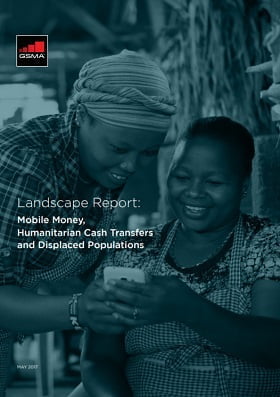
Landscape Report: Mobile Money, Humanitarian Cash Transfers and Displaced Populations
Report
Over the past decade, natural disasters and complex emergencies have led to a sharp increase in the need for humanitarian assistance. By the end of 2015, an estimated 65.3 million people were forcibly displaced globally, due to conflict and persecution. That same year, natural disasters caused the...

Fitting aid to context: community experiences of aid delivery in northern Syria
Report
The ongoing conflict in Syria has left 13.5 million Syrians in need of humanitarian assistance. Several local and international organisations provide aid to northern Syria, but their chosen modalities fail to effectively meet community members’ needs. While aiming to respond to immediate short-term...

Learning Event Report: Multipurpose cash and protection for south sudanese refugees in Bidibi refugee settlement Uganda
Report
A consortium of partners comprising DanChurchAid (DCA), Transcultural Psychosocial Organization (TPO) and Mercy Corps (MC) have been implementing an 8-month Cash-based Interventions and Protection (MHPSS) response for South Sudanese refugees in Bidibidi settlement. The response was aimed at addressing...

Multisectoral Basic Needs and Market Assessment Moyo Uganda
Report
A multisectoral basic needs and market assessment done in Palorinya settlement and the host communities within Moyo district. Focuses are on basic needs and cash feasibility, the education system gaps, the firewood issues and access to loans and credit.
Data were gathered in December 2017, with...

Can E-Transfers Promote Financial Inclusion in Emergencies: A Case Study from Ethiopia
Report
The Electronic Cash Transfer Learning Action Network (ELAN) launched this research to build an evidence base around connecting emergency electronic transfer (e-transfer) recipients with additional financial
services. They also wanted to learn if, when, and how e-transfers can promote sustained uptake and...

Challenging the System: Humanitarian Cash Transfers in Iraq
Report
Cash transfers have been used in Iraq to meet the critical basic needs of a highly vulnerable population, providing them dignity and flexibility in a context of uncertainty and economic need. Although Iraq is an appropriate context for the use of cash transfers, factors including government acceptance,...

Aid in context: the importance of market-based approaches to aid delivery in northern Syria
Report
With the Syrian conflict now in its seventh year, 13.5 million Syrians need humanitarian aid. But aid in northern Syria focuses inflexibly on food kits that are expensive to administer, designed to satisfy short-term needs.
Many people sell their food aid to pay for other urgent needs. This
undermines...

Baseline Survey for Project Output and Livelihoods Support Assessment
Report
This report highlights the baseline findings of the UNHCR funded project “Increased self-reliance through cash interventions and livelihoods support to conflict-affected South Sudanese refugees in Bidibidi refugee settlement and host communities in Yumbe District in Uganda” implemented by...

Humanitarian Cash Transfers in the Democratic Republic of Congo
Report
The Democratic Republic of Congo (DRC) is at a crossroads with regard to cash transfers. On the one hand, cash has been accepted by most donors and aid agencies as an appropriate response, with solid evidence underpinning its use. Aid agencies have driven important innovations in an environment where...
